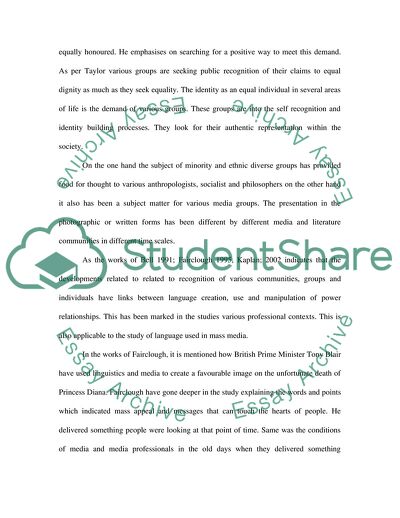
- Home
- Free Samples
- Premium Essays
- Editing Services
- Extra Tools
- Essay Writing Help
- About Us
- Studentshare
- Subjects
- Miscellaneous
- Vanley Burke and the authentic Birmingham Experience
Vanley Burke and the authentic Birmingham Experience - Essay Example

- Subject: Miscellaneous
- Type: Essay
- Level: Masters
- Pages: 4 (1000 words)
- Downloads: 0
- Author: winnifred96
Extract of sample "Vanley Burke and the authentic Birmingham Experience"
and on the non monetary terms; they left their native place, their culture got influenced by other culture and their social setup and comfort got changed. These people provided forces of production to the community and society that was entirely new to the African Caribbean community. These people formed work forces of factories, did clerical and lower level jobs and even been identified as a slave class at one point of time. Their struggle for identity and appropriate representations has continued for long time.
Some authors argue that the politics of race and minority have been more depended on the not negotiable factors like the manner of interests: trust, loyalty, pride, honour, vanity, ambition, moral belief, etc. Machiavelli et al; 1997 has mentioned Charles Taylor work on the contemporary "politics of recognition" as an inheritance from Rousseau. In the views of Taylor, Rousseau is the source of the demand that political life must satisfy the desire for esteem. Rousseau rejects a hierarchical system of honour and a Stoical indifference to public esteem in favour of a politics where all virtuous citizens are equally honoured.
He emphasises on searching for a positive way to meet this demand. As per Taylor various groups are seeking public recognition of their claims to equal dignity as much as they seek equality. The identity as an equal individual in several areas of life is the demand of various groups. These groups are into the self recognition and identity building processes. They look for their authentic representation within the society. On the one hand the subject of minority and ethnic diverse groups has provided food for thought to various anthropologists, socialist and philosophers on the other hand it also has been a subject matter for various media groups.
The presentation in the photographic or written forms has been different by different media and literature communities in different time scales. As the works of Bell 1991; Fairclough 1995,
...Download file to see next pages Read MoreCHECK THESE SAMPLES OF Vanley Burke and the authentic Birmingham Experience
The Replicability of the Technological & IT Sector Model of Silicon Valley, USA in the City of Birmingham, UK
The Civil Rights Demonstrations in Birmingham, Alabama
Library of Birmingham - Marketing Promotion
Ray Charles' Influence on Music in 1960's
The International Conference Centre in Birmingham
Authentic Assessment and Rubrics
Marketing Strategies - Birmingham
Standardized and Authentic Assessments

- TERMS & CONDITIONS
- PRIVACY POLICY
- COOKIES POLICY